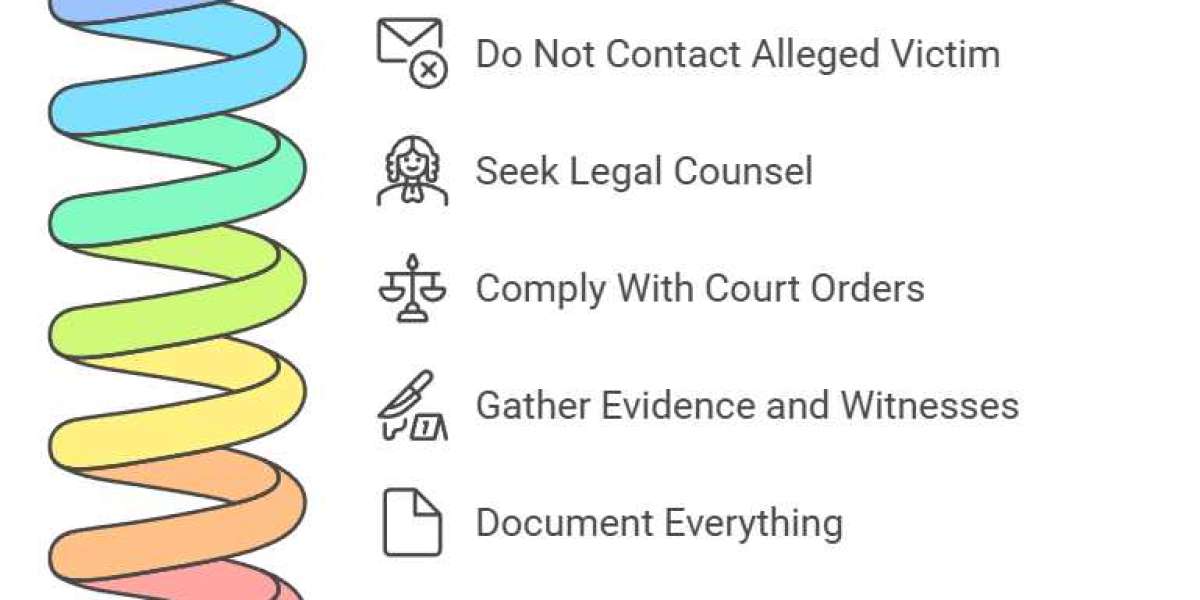Being accused of domestic violence in Maryland can be an overwhelming and stressful experience. The legal, social, and personal consequences of such allegations can be severe, making it crucial to respond carefully and strategically. Whether the accusations are based on fact or misunderstanding, taking the right steps can significantly impact the outcome of your case. Below is a detailed guide to help you navigate the process if you are accused of Domestic Violence In Maryland.
1. Understand the Accusation
The first step is to understand the specifics of the accusation. Domestic violence in Maryland encompasses a range of behaviors, including physical assault, threats, harassment, and stalking. Familiarize yourself with the allegations and the evidence presented against you. This clarity will help you and your attorney build an effective defense.
2. Do Not Contact the Alleged Victim
It is essential to avoid any direct or indirect contact with the alleged victim. This includes phone calls, text messages, social media interactions, or asking mutual acquaintances to intervene. Maryland courts often issue protective orders that prohibit contact with the alleged victim. Violating such orders can result in additional charges and weaken your defense.
3. Seek Legal Counsel Immediately
Hiring an experienced attorney who specializes in domestic violence cases in Maryland is crucial. Your attorney will guide you through the legal process, explain your rights, and develop a defense strategy. They will also handle interactions with law enforcement and the court system on your behalf, reducing the risk of self-incrimination.
4. Comply With Court Orders
If a protective order or no-contact order has been issued, comply with it fully. These orders may restrict your access to your home, children, or personal belongings. Violating these orders can lead to contempt of court charges and negatively impact your case. If the terms of the order seem unfair, your attorney can petition the court for modifications.
5. Gather Evidence and Witnesses
Building a strong defense often requires gathering evidence that supports your version of events. This might include:
Text messages, emails, or other forms of communication
Surveillance footage or photos
Witness testimonies from friends, family, or neighbors
Your attorney will help identify and compile relevant evidence to challenge the allegations.
6. Document Everything
Maintain a detailed record of any interactions related to the case. This includes notes about the incident, subsequent events, and any communication with the alleged victim or law enforcement. A clear and chronological record can help your attorney establish inconsistencies in the accusations or demonstrate your compliance with legal requirements.
7. Avoid Discussing the Case Publicly
Refrain from discussing the case on social media or with anyone outside of your attorney. Anything you say can be used against you in court. Maryland prosecutors can use social media posts or casual conversations as evidence to build their case.
8. Prepare for Court Appearances
Attending all court appearances is mandatory. Dress professionally, arrive on time, and behave respectfully. Your demeanor in court can influence how judges and jurors perceive you. Work closely with your attorney to understand what to expect during hearings and how to present yourself effectively.
9. Consider Counseling or Rehabilitation Programs
If the accusations stem from a genuine misunderstanding or minor incident, voluntarily enrolling in anger management or domestic violence intervention programs can demonstrate to the court your commitment to addressing the issue. While this does not imply guilt, it shows a proactive approach to conflict resolution.
10. Stay Informed About Maryland’s Domestic Violence Laws
Understanding domestic violence laws in Maryland is essential to navigating your case. These laws outline the definitions of domestic violence, the rights of the accused, and potential penalties. Your attorney can explain how these laws apply to your situation and help you make informed decisions.
Conclusion
Being accused of domestic violence in Maryland is a serious matter that requires immediate and strategic action. By understanding the accusations, seeking skilled legal counsel, and following the steps outlined above, you can protect your rights and work toward a favorable outcome. Remember, every case is unique, so having an experienced attorney by your side is critical to navigating the complexities of Maryland’s legal system effectively.


